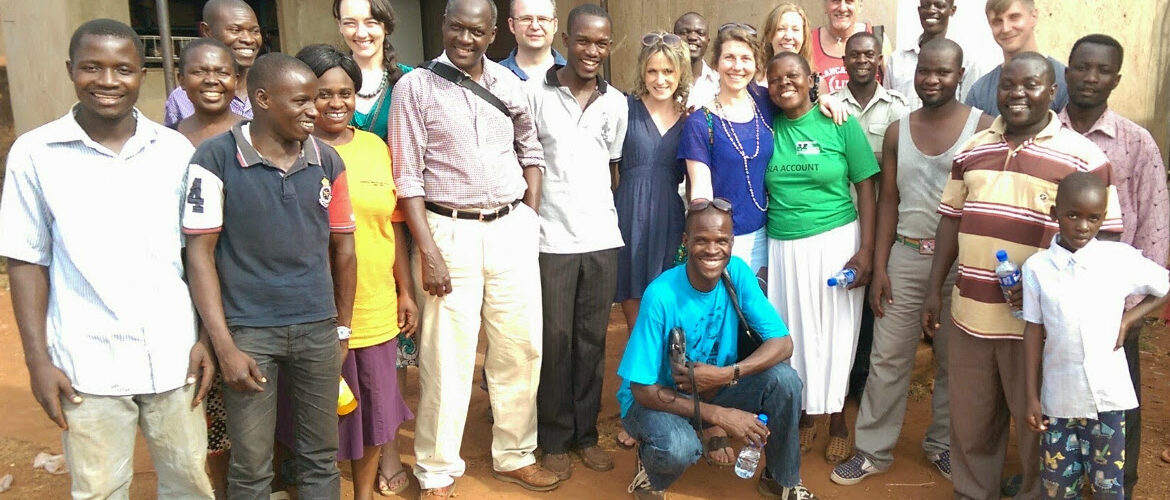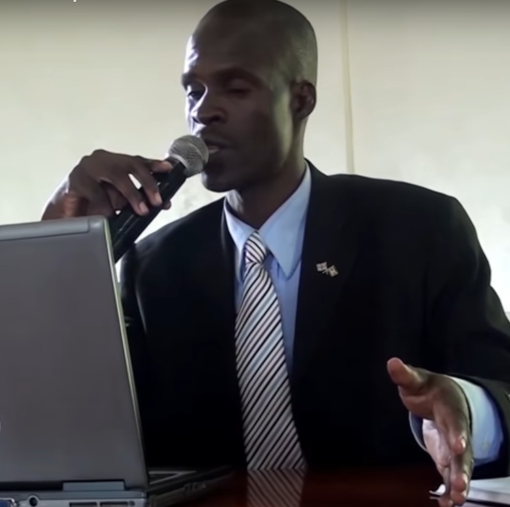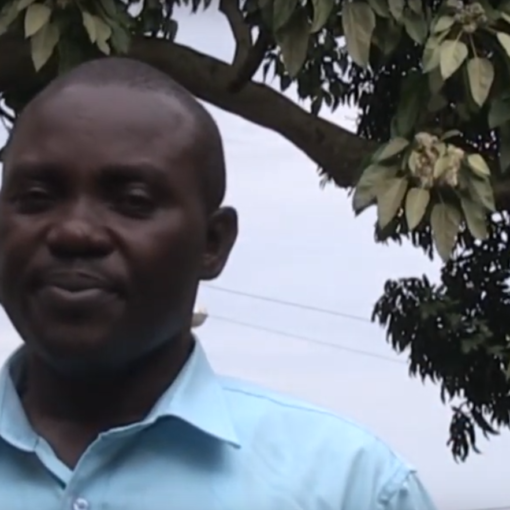The Sharing Stories Venture was honoured to be invited to undertake a series of listening events in Uganda during February 2015 to explore the understanding of recovery in a Ugandan context. The subsequent events not only provided an insight into the views of both service providers and users on the concept and contributing factors in recovery but also valuable lessons on running knowledge exchange events within Uganda.
Starting a journey in exploring recovery
The Sharing Stories Venture are a group of people who access mental health services, mental health professionals, trainees and educators from Uganda and the United Kingdom (UK) who work together to develop ability and knowledge through a shared understanding of mental health. Sharing Stories were invited to run the Ugandan recovery listening events as part of the Tropical Health Education Trust (THET) funded Brain Gain 2 project (http://mhinnovation.net/organisations/butabika-east-london-link), a three year grant to develop training for peer support workers and mental health professionals across Uganda.
“Recovery is when the water in my heart stops boiling”
As an established group with defining principles of equality and inclusivity, the task of collaboratively identifying themes in recovery was an ideal fit for the Sharing Stories Venture and a group of six UK members (representing people who work in services and people who access them) travelled to Uganda to facilitate the events alongside their Ugandan colleagues. The lead for these events was one of the UK facilitators – christened the “wise old man” by a Ugandan colleague – although this is a rotating role between UK and Ugandan members within Sharing Stories. The key task to be undertaken was to answer the following questions: –
- What is recovery?
- What helps achieve and maintain recovery?
- What hinders recovery?
The process of collaboration
Prior to UK members arriving in Kampala, extensive preparations had been made using conference calls. The planning of the four events which the group were to run was a truly collaborative process between both countries but this is not always a simple process when members are over 4000 miles apart. While the use of technology such as Skype, allowed the group real-time discussion, frequent connectivity issues owing to technology problems in both countries hampered many meetings. Although the time difference between the countries is relatively small, this still caused some problems when identifying suitable meeting times for members with a variety of roles, diverse responsibilities, and varying access to technology. Members also found it hard to form relationships with individuals whom they had not yet met, and poor quality audio often meant identifying individuals could be more difficult.
Recovery is… “soaring above the problem like an eagle”
The group lead also found that it was often hard to draw conversations to a consensus due to difficulties in seeing or hearing the reaction of individuals to the many and various points made. While the decision making processes surrounding the development of the events was time consuming, the choices made were so thoroughly explored that they were almost never revisited and the clear roles and responsibilities that were defined within the group meant that these issues did not impact seriously on successful planning.
Running the listening events
The events used a combination of group discussion sessions and one to one listening over four separate days. The questions which guided this process had previously been developed by two Sharing Stories members (one Ugandan, one British) and refined by the larger group, a process which both enabled rapid development and wide participation. The four events targeted different participant groups in order to examine the potential for variations in response.

Three events were held at the main mental health referral hospital in Uganda which catered for people who use mental health services, carers and professionals from the capital, Kampala, and a dedicated event for people who use mental health services and professional representatives from the six regions identified by the Ministry of Health for Uganda. The fourth event was held in Jinja, a town in southeast Uganda, to enable an in depth consideration of a regional perspective on recovery.
Recovery is… “giving back to my family and the community”
It became clear that locating events within the mental health hospital had an emotional impact on some attendees. The event in Jinja was located in a hotel and this served to mitigate these issues, potentially resulting in a less emotive experience and reduced distress for participants as a result.
Facilitators made a conscious effort to flatten power structures by avoiding job titles, not providing individual introductions of facilitators at the start of the day, and running groups for people who use mental health services and professionals separately before coming together as a larger group to discuss emergent themes. This encouraged personal connections from the outset as facilitators could meet attendees and work together as equals to explore their experiences. Meanwhile, the separation of people who use mental health services and professionals increased the freedom of both groups to voice their opinions with less restraint.
Recovery is… “being acceptable to the community by modelling yourself to their standards”
The option to participate in either a group, or one to one session with a facilitator was given to all participants. Art materials were also provided for those who wished to explore alternative expressions of their experiences. An opportunity for attendees to use poetry and music was also provided with several individuals using this to great effect.
The personal stories shared in the morning sessions were used to identify key themes, often numbering in the hundreds at a given event. These were summarised into meta-themes each day and presented to the attendees in the afternoon to “check we listened well” and to give an opportunity to add, remove or alter the themes. Each day also included feedback from facilitators who use mental health services in the UK and Uganda who provided a personal summary of the day.
Interpreting stories for recovery themes
It was apparent that the richness of information and holistic nature of the themes revealed in the stories of participants was of great importance. At each event the meta-themes were pulled open again by participants so they could explore and share the detail of the themes inside.

When the facilitators looked to work with participants to explore ordering the themes many found this very difficult, indicating the importance of considering the breadth of experience in a holistic manner. When participants were able to identify a key theme their selections were extremely varied, highlighting the individual nature of the experiences of recovery and the importance of valuing personal narrative.
“when he recovers, I recover too”
In order to run each listening event effectively within its time constraints, identifying meta-themes was done fairly rapidly each day. However, the summation of all meta-themes which was undertaken following the events involved much more reflection on their wider context, how they overlapped, and the complexity of those which interlocked. This was only possible with the input of all Sharing Stories members due to the variety of contexts in which themes were raised by participants and the varying interpretations of the facilitators. Ensuring that the themes remained grounded in the experiences and social environment of the participants who provided them remained the key objective throughout. Although the final themes identified were filtered through the belief systems of all Sharing Stories members, by being mindful of this fact an honest attempt was been made to capture the essence of the stories using the language of the story teller.
“Recovery is an ongoing journey rather than a final destination”
There are many similarities in the themes emerging from these events and those identified as common to concepts of recovery in the UK and other western nations such as hope, empowerment and having meaning in life (Leamy et al, 2011). The most striking difference was the emphasis on finances in Uganda. While the UK benefits system and NHS provides those experiencing mental health difficulties with minimum levels of support, the experience of Ugandans is one of social stigma and personal difficulties exacerbated by significant financial distress. However, even within this common theme, participants saw many individual priorities for how financial support was best used. Suggested priorities included providing better medication, accessing education, developing income generation schemes, or simply ensuring that basic needs were met such as having a safe place to live and appropriate food being available. As with all other emerging themes, using the individual’s needs and priorities were at the heart of defining that person’s recovery.
Using the knowledge
The listening events have not identified a solution to implement recovery in mental health – they have obtained an initial understanding of people’s experiences allowing others to build upon this learning, both in Uganda and the UK. In order to share the learning which occurred at the events with all participants, Sharing Stories are creating a booklet of findings for distribution to everyone who attended. This will reflect the rich and varied nature of the experiences that were shared and will hopefully support everyone involved to build on their own learning at the events. The Brain Gain 2 project will use this learning to inform the development of their peer support worker training which will begin in 2015. As part of that project four people will come to the UK at the end of the project to share their learning. Sharing Stories are focussed on providing ongoing exchange opportunities both before and after this date.
“We’ve been using a foreign model of recovery which typically does not work in Uganda and the information we have gathered will make our future work brilliant”
The group were encouraged to run these events as both implementers and innovators, exploring and adapting the ways in which the events ran dependant on the ongoing learning and defining the manner in which the learning would be expressed the the Brain Gain 2 project team based on the priorities of participants. They operated with an open mind having consciously put aside everything they knew about recovery outside Uganda and hearing much more as a consequence. Sharing Stories desire is to organise for Ugandan members to join in running similar listening events on recovery in the UK with the same premise of equality, inclusivity and listening well without preconceptions.
The Sharing Stories Team is made up of staff and service users from Uganda and the UK: Will Curvis, Jenny Davies, Keith Holt, Benon Kabale, Rosco Kasujja, Lynda Esther Nakalawa, Edward Nkurunungi, JJ Paul Nyeko, Samuel Ouma, Rob Parker, Bethan Roberts, and Helen Walls.
Leamy, M., Bird, V., Le Boutillier, C., Williams, J., Slade, M. (2011) Conceptual framework for personal recovery in mental health: systematic review and narrative synthesis, British Journal of Psychiatry, 199(6), pp. 445-452
This article originally appeared in the Clinical Psychology Forum Special Issue ‘Recovery’? Number 268, April 2015, ISSN: 1747-5732





